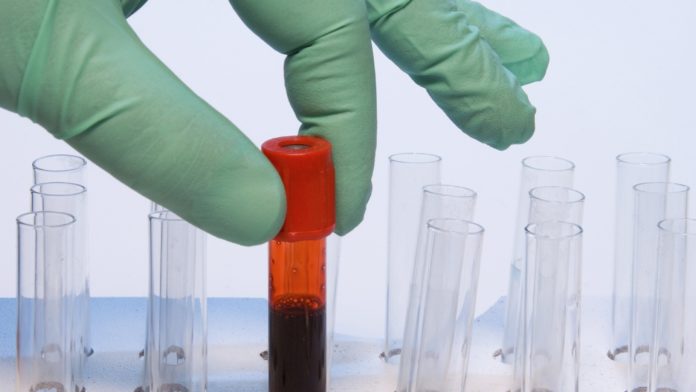
A single blood test capable of detecting multiple types of cancer could soon be a reality, scientists say, after they discovered more than 800 unique compounds in the blood of cancer patients. In the future, doctors may be able look for those biomarkers when screening for cancer.
The research, led by the UK Early Cancer Detection Consortium, provides the first comprehensive review of cancer-specific blood markers identified for further clinical development.
Currently, about 14 million new cases of cancer are diagnosed annually. However, according to the World Health Organization, annual cancer cases are expected to rise to 22 million within the next two decades. Despite recent advancements in cancer therapies, the Centers for Disease Control and Prevention states that the global number of deaths from cancer will increase by nearly 80 percent by 2030.
Improving early detection and diagnosis is key to increasing survival rates among cancer patients. While catching it early doesn’t always guarantee a good outcome, it greatly increases the chances of long-term survival — even for cancers with low overall survival rates.
As such, cancer specialists are increasingly looking to develop new techniques to detect cancer in its earliest stages. It’s long been known that all cancers produce compounds that end up in the bloodstream. Now, scientists say it’s feasible that such blood markers could form the basis of a general screening test for many different forms of cancer.
“A single blood-based screening test would be a game changer for early detection of cancer, which could help make it a curable disease for many more patients,” says Dr. Ian Cree, a professor of pathology at the University of Warwick Medical School in the UK and lead author of the new study.
Hoping to move one step closer in the development of such a test, Dr. Cree’s team set out to review the scientific literature to answer the question: “What biomarkers exist that could be used to develop a general cancer screening assay from blood sampling and what is their state of development?”
The team presented the findings of their research — the first systematic review of its kind — on Sunday at the National Cancer Research Institute (NCRI) Cancer Conference, held in Liverpool, UK, November 2nd-5th.
Altogether, they reviewed 19,000 scientific papers and identified more than 800 markers in the blood of cancer patients.
Deciding which biomarkers work best for cancer detection
After conducting their comprehensive review of existing research, Dr. Cree says he is confident that they have “identified all the relevant biomarkers.” The next step, he says, “is working out which ones work the best for spotting cancers.”
The evidence they collected will help them “prepare for the next stage of the blood test development as it moves forward into clinical laboratory based tests,” note the researchers.

Scientists have identified over 800 biomarkers that could potentially be used to identify early signs of cancer in the blood.
Sara Hiom, director of early diagnosis at Cancer Research UK, describes the study as “an innovative and promising new approach” to cancer detection and diagnosis. Although the work is still in its early stages, Hiom says it “shows how our increased understanding of cancers’ ‘markers’ and new technologies are combining to offer new opportunities to detect cancer sooner.”
Because cancer cells often start shedding blood markers long before many of the signs and symptoms of tumors begin to emerge, scientists hope the test will be able to detect these signs of cancer earlier than any current diagnostic methods. Earlier diagnosis generally means treatment is more effective, which, in turn, improves survival.
“Our goal over the next 20 years is that 3 in 4 cancer patients will survive at least 10 years after their diagnosis,” says Hiom.
This is one of several recent studies demonstrating the significant progress scientists have made towards developing more accurate tests to identify cancer at earlier stages. In another study, researchers at the University College London (UCL) for the first time identified an epigenetic signature that can be detected in the blood of women who have a genetic predisposition that raises their risk of developing breast cancer.
While we already have tests that can identify women with an inherited genetic mutation associated with breast cancer risk (like BRCA1/2), the blood test developed by UCL scientists can detect other genetic risk factors, besides mutations. The researchers tested the new procedure in three different groups of women and found it could consistently predict who would develop cancer five to 12 years later. According to the research team, their findings suggest that a simple blood test might be able to accurately detect cancer years before it develops, giving patients and doctors valuable time to take preventive measures.
In a related development, researchers announced in June that they’ve created a new test that accurately predicts the risk of metastasis — the spread of cancer cells throughout the body — among breast cancer patients. The test, which uses a technique called intravital imaging, could help doctors decide which patients need more aggressive treatment, and which patients could be spared.
